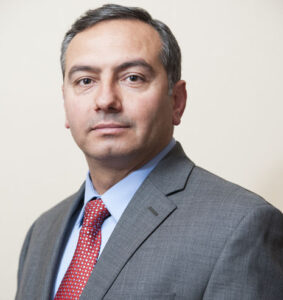
By Fares Braizat – Nov 28,2021
For the past two decades, Jordanians have been reporting very high levels of satisfaction with safety and security in their neighbourhoods and the country at large in identical percentages. In this sense, they stand out when compared to other countries in the region and beyond. Reported satisfaction with safety at the neighbourhood level is identical to that reported at the county’s level in many of the surveys conducted in Jordan such as the Arab Transformation Survey. In all other neighbouring countries there is a gap, and in some of them it is a hugely significant gap.
Empirical data demonstrate much less satisfaction with safety at the country level when compared to that at the neighbourhood level in the conflict-ridden neighbouring countries. For example, Iraqis report nearly four times satisfaction levels with safety in their neighborhoods higher than that at the country level. This means less popular trust in the national security policies and institutions. In countries like Iraq, Lebanon, Syria, Tunis, and Libya, it is expected to find such positions.
According to the recently published Law and Order report by Gallup, confidence in the local police in MENA region stood at 72 per cent, compared to 49 per cent in Latin American and the Caribbean, which reported the lowest levels of confidence in the local police, while Western Europe reported the highest levels of confidence in local police at 82 per cent.
In Gallup’s Law and Order Index 2020, Jordan ranked 16 worldwide and second among Arab countries after the UAE, which took the second spot globally after Norway. Confidence in the Jordanian police has been in the range of 85-95 per cent since 2000, one of the highest globally as the World Value Survey data demonstrate. For other neighbouring countries, confidence in the police has fluctuated significantly over the years, especially in Iraq, Egypt, Tunis, Libya, Morocco, Algeria, Yemen and Lebanon. Some MENA countries did not allow these surveys to be carried out but allowed a certain survey!
Jordan’s “law and order” status is a function of state-society relations. Jordanians cherish their safety and sense of security, not only at the country and neighbourhood levels, but also at home. When asked if they ever “felt unsafe from crime in your own home in the past 12 months,” 88 per cent reported never or rarely. This compares to 88 per cent in Canada, 92 per cent in Germany, 93 per cent in Hong Kong, 98 per cent in South Korea and 87 per cent in each of the US and Egypt, according to the latest wave of the World Values Survey.
Despite these globally recognised ranks, there are a few measures that have to be taken to fine-tune loose ends and reinforce state monopoly over the use of force. Coercive power must be limited to state organs within the limits of the law and the constitution. Law and order education should be integrated in all public policies in order to ensure the solidification of an incubating value system that appreciates and respect the law and rejects unlawful wrong doing.
The writer is the Chairman of NAMA Strategic Intelligence Solutions, H.E. Dr. Fares Braizat.
This article was originally published in The Jordan Times on November 28, 2021. For the original article source, click here.
